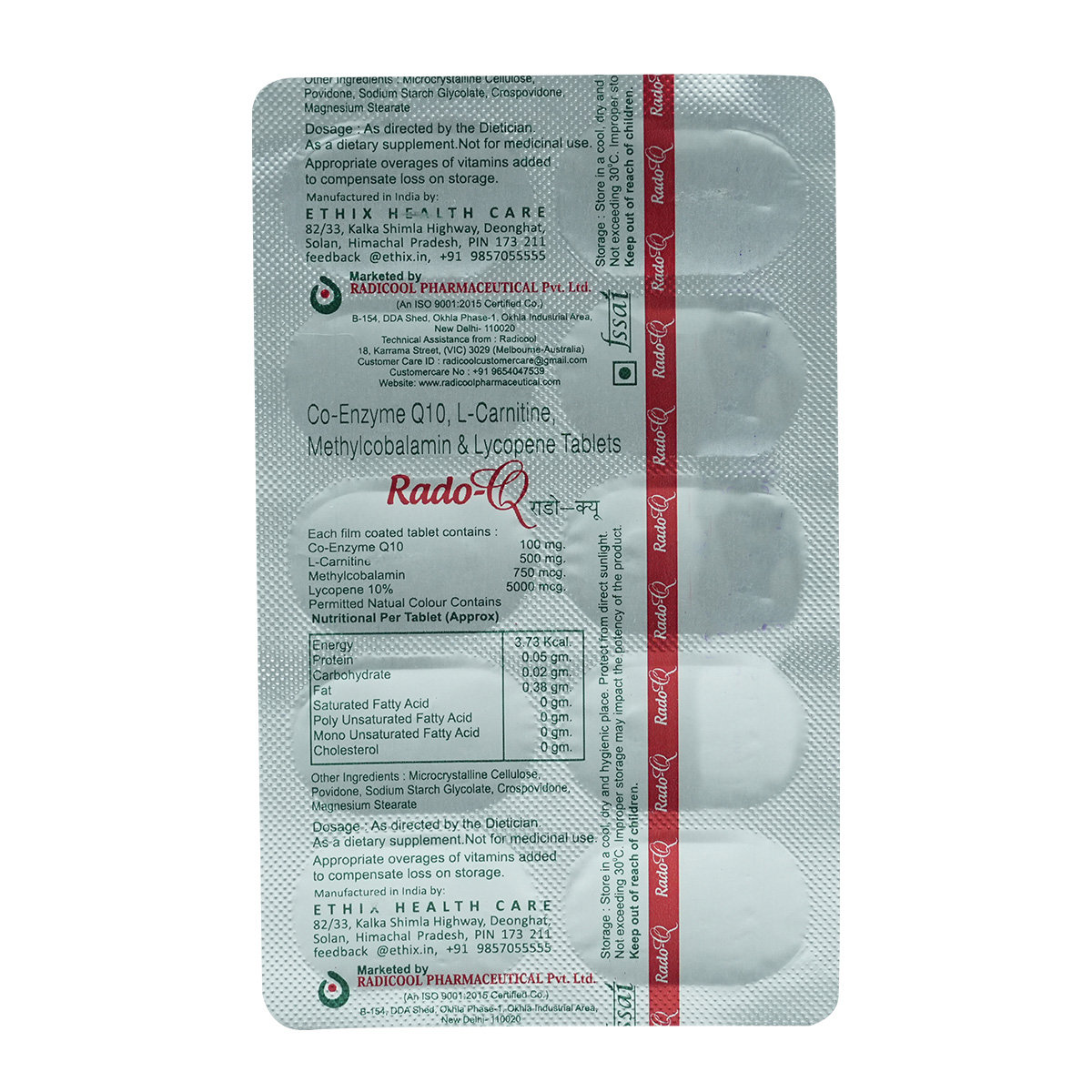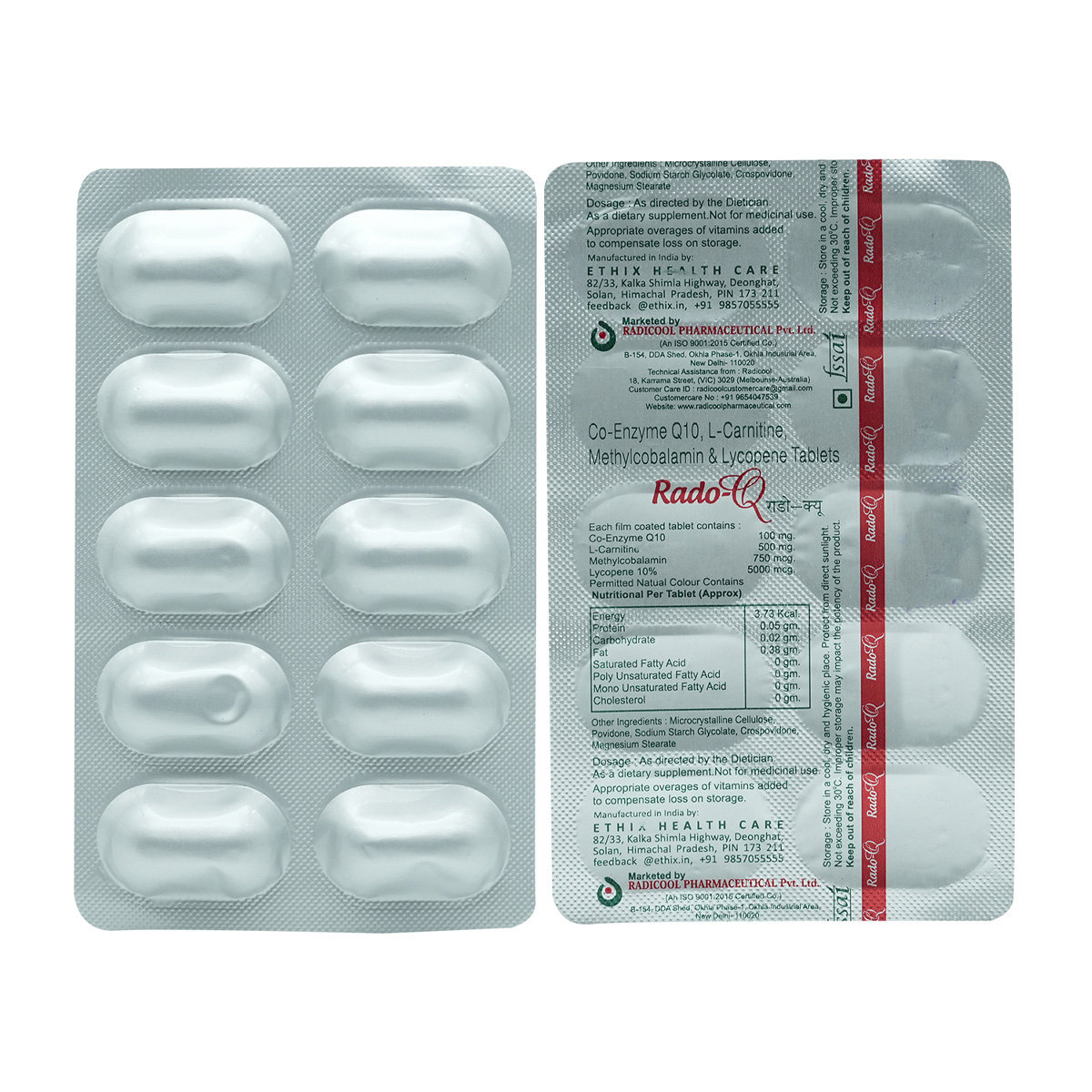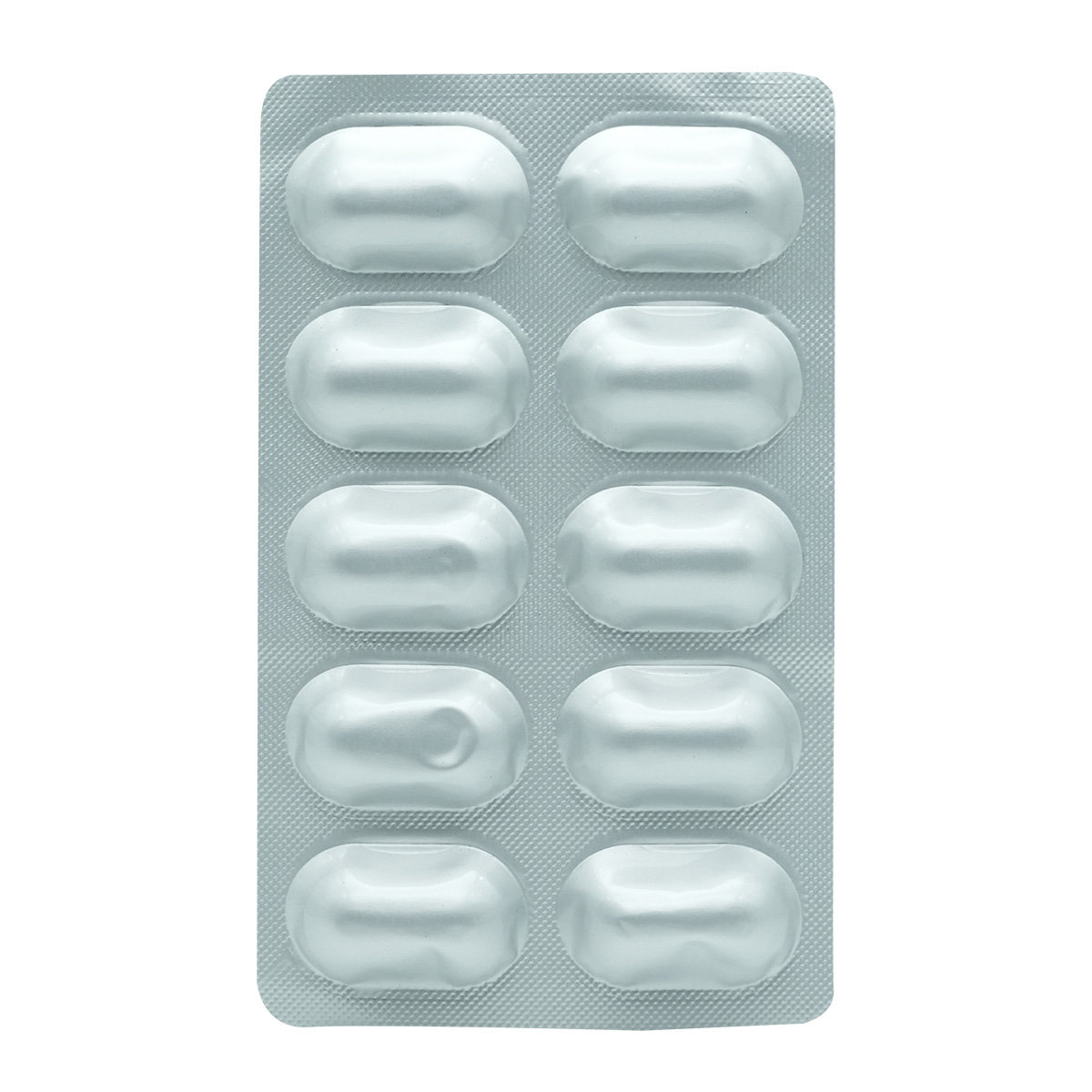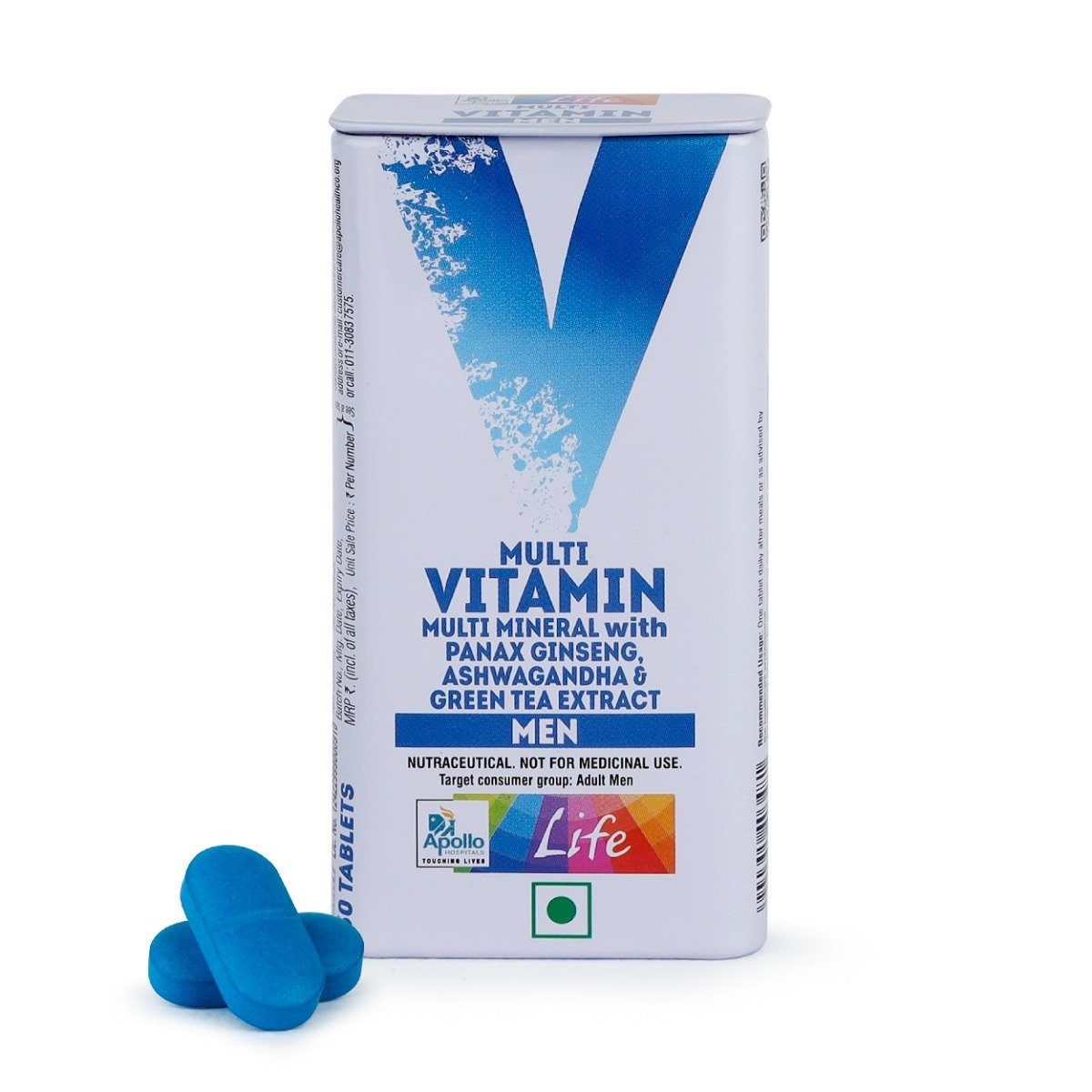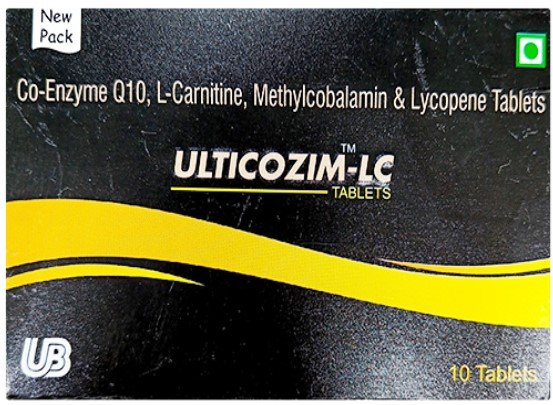Rado Q Tablet 10's
MRP ₹591.5
(Inclusive of all Taxes)
₹88.7 Cashback (15%)
About Rado Q Tablet
Rado Q Tablet belongs to the class of 'nutritional supplements' that is used in nutritional deficiencies. Nutritional deficiency occurs when the body is unable to absorb or get enough nutrients from food. It could lead to various health problems, including defective bone growth, skin disorders, digestive issues, and dementia (memory loss).
Rado Q Tablet is a combination of Coenzyme Q10, L-Carnitine, Methylcobalamin (Vitamin B12), and Lycopene. Coenzyme Q10 (also known as Ubidecarenone/CoQ10/Ubiquinone) is a nutrient and an antioxidant that generates energy in the cells. L-Carnitine or Levo-carnitine is a naturally occurring derivative of the amino acids, lysine and methionine. It helps the body produce energy from fat. Methylcobalamin regulates body functions like cell multiplication, blood formation, and protein synthesis. Lycopene belongs to the class of carotenoids (plant pigments). It is an antioxidant that protects cells from damage by fighting against free radicals (unstable atoms that damage cells).
Your doctor will decide the dose and duration of Rado Q Tablet . Common side effects of Rado Q Tablet include stomach upset, headache, heartburn, loss of appetite, nausea, vomiting, and diarrhoea. These side effects are not familiar to everyone and vary individually. If you notice any side effects that are not manageable, please consult your doctor.
Let your doctor know if you use any other medications, including vitamins, before starting Rado Q Tablet . Please tell your doctor if you are allergic to Rado Q Tablet or other medicines. Inform your doctor beforehand if you have a history of liver, heart or kidney diseases. Limited information is available on how Rado Q Tablet affects pregnancy and breastfeeding; therefore, it is advised to seek medical advice before starting the medicine. It is advised to avoid or limit alcohol consumption while being treated with Rado Q Tablet .
Country of origin
Manufacturer/Marketer address
Online payment accepted

secured payment

india's most trusted pharmacy

genuine products
Manufacturer/Marketer :
Consume Type :
Expires on or after :
Return Policy :
Provide Delivery Location
About Rado Q Tablet
Rado Q Tablet belongs to the class of 'nutritional supplements' that is used in nutritional deficiencies. Nutritional deficiency occurs when the body is unable to absorb or get enough nutrients from food. It could lead to various health problems, including defective bone growth, skin disorders, digestive issues, and dementia (memory loss).
Rado Q Tablet is a combination of Coenzyme Q10, L-Carnitine, Methylcobalamin (Vitamin B12), and Lycopene. Coenzyme Q10 (also known as Ubidecarenone/CoQ10/Ubiquinone) is a nutrient and an antioxidant that generates energy in the cells. L-Carnitine or Levo-carnitine is a naturally occurring derivative of the amino acids, lysine and methionine. It helps the body produce energy from fat. Methylcobalamin regulates body functions like cell multiplication, blood formation, and protein synthesis. Lycopene belongs to the class of carotenoids (plant pigments). It is an antioxidant that protects cells from damage by fighting against free radicals (unstable atoms that damage cells).
Your doctor will decide the dose and duration of Rado Q Tablet . Common side effects of Rado Q Tablet include stomach upset, headache, heartburn, loss of appetite, nausea, vomiting, and diarrhoea. These side effects are not familiar to everyone and vary individually. If you notice any side effects that are not manageable, please consult your doctor.
Let your doctor know if you use any other medications, including vitamins, before starting Rado Q Tablet . Please tell your doctor if you are allergic to Rado Q Tablet or other medicines. Inform your doctor beforehand if you have a history of liver, heart or kidney diseases. Limited information is available on how Rado Q Tablet affects pregnancy and breastfeeding; therefore, it is advised to seek medical advice before starting the medicine. It is advised to avoid or limit alcohol consumption while being treated with Rado Q Tablet .
Uses of Rado Q Tablet
Key Benefits
Rado Q Tablet contains Coenzyme Q10, L-Carnitine, Methylcobalamin (Vitamin B12), and Lycopene. Coenzyme Q10 is a nutrient and an antioxidant that generates energy in your cells. L-Carnitine helps the body produce energy from fat. Methylcobalamin regulates body functions like cell multiplication, blood formation, and protein synthesis. Lycopene is an antioxidant that protects cells from damage by fighting against free radicals (unstable atoms that damage cells). It also prevents the risk of breast and prostate cancer and is used in high blood pressure and high cholesterol.
Directions for Use
Storage
Side Effects of Rado Q Tablet
- Stomach upset
- Headache
- Heartburn
- Loss of appetite
- Nausea
- Vomiting
- Diarrhoea
Drug Warnings
Brief your medical history to the doctor if you have any heart, liver or kidney diseases before starting Rado Q Tablet . If you are allergic to lycopene or its food sources like tomatoes, inform your doctor since tomato-based products are acidic and may irritate stomach ulcers. Please consult your doctor if you are pregnant or planning to conceive or a breastfeeding mother before starting Rado Q Tablet . Drinking alcohol may hinder Rado Q Tablet absorption; therefore, it is advised to limit the alcohol intake while using Rado Q Tablet . Please consult your doctor before giving Rado Q Tablet to children.
Drug Interactions
Drug-Drug Interaction: Rado Q Tablet may interact with anticancer drugs (cisplatin, carboplatin), anticoagulants (warfarin, acenocoumarol), and blood pressure medicines (captopril, losartan, diltiazem, amlodipine, hydrochlorothiazide, and furosemide).
Drug-Food Interaction: Limit alcohol intake during the treatment to get the maximum benefits of Rado Q Tablet .
Drug-Disease Interaction: Before using Rado Q Tablet , let your doctor know if you have an underactive thyroid (hypothyroidism), liver or kidney disease, diabetes, fits, and undergoing dialysis treatment.
Drug-Drug Interactions Checker List
- CISPLATIN
- CARBOPLATIN
- WARFARIN
- ACENOCOUMAROL
- CAPTOPRIL
- LOSARTAN
- DILTIAZEM
- AMLODIPINE
- HYDROCHLOROTHIAZIDE
- FUROSEMIDE
Habit Forming
Diet & Lifestyle Advise
- Maintain proper weight by following a healthy and well-balanced diet.
- Avoid smoking and alcohol consumption.
- Exercise regularly and try to avoid stress by practicing meditation or yoga.
- Include more fruits and vegetables in your diet as they contain antioxidants.
- Tomato-based products have high amounts of Lycopene. You can also have apricots, cranberries, grapes, pink grapefruits, guavas, papayas, peaches, and watermelons.
- Limit foods with high cholesterol and saturated fats.
- Cut down on sugar, salt and processed foods.
- Drink plenty of water.
Special Advise
- Inform your doctor that you are taking Rado Q Tablet if you are undergoing any medical tests.
- Lycopene might slow the blood clotting process; hence let your doctor know if you have a scheduled surgery since the usage of lycopene supplements should be stopped at least two weeks before the surgery.
Disease/Condition Glossary
Nutritional deficiency: A nutritional deficiency occurs when the body does not absorb or get enough nutrients from food. This condition occurs when a person's nutrient intake is lesser than the body's recommended requirement. It can lead to various health problems like a weak immune system, skin problems, digestion problems, defective bone growth, and neurological diseases.
FAQs
Disclaimer
Alcohol
Safe if prescribed
It is advised to limit/avoid alcohol intake to ensure maximum absorption of nutrients.
Pregnancy
Consult your doctor
Rado Q Tablet should be used during pregnancy only when advised by the doctor. Please consult your doctor before taking Rado Q Tablet if you are pregnant or planning to conceive.
Breast Feeding
Consult your doctor
There is limited information on how Rado Q Tablet affects breastfeeding. Please consult your doctor before taking Rado Q Tablet if you are a breastfeeding mother.
Driving
Safe if prescribed
Rado Q Tablet usually does not interfere with your driving ability. Please consult your doctor for more information.
Liver
Consult your doctor
Please consult your doctor before using Rado Q Tablet if you suffer from liver diseases.
Kidney
Consult your doctor
Please consult your doctor before using Rado Q Tablet if you suffer from any kidney impairment/kidney disease.
Children
Safe if prescribed
Please consult your doctor before giving Rado Q Tablet to children. Your doctor will decide if Rado Q Tablet can be given to your child or not.
Author Details
We provide you with authentic, trustworthy and relevant information
Uses of Rado Q Tablet
Key Benefits
Rado Q Tablet contains Coenzyme Q10, L-Carnitine, Methylcobalamin (Vitamin B12), and Lycopene. Coenzyme Q10 is a nutrient and an antioxidant that generates energy in your cells. L-Carnitine helps the body produce energy from fat. Methylcobalamin regulates body functions like cell multiplication, blood formation, and protein synthesis. Lycopene is an antioxidant that protects cells from damage by fighting against free radicals (unstable atoms that damage cells). It also prevents the risk of breast and prostate cancer and is used in high blood pressure and high cholesterol.
Directions for Use
Storage
Drug Warnings
Brief your medical history to the doctor if you have any heart, liver or kidney diseases before starting Rado Q Tablet . If you are allergic to lycopene or its food sources like tomatoes, inform your doctor since tomato-based products are acidic and may irritate stomach ulcers. Please consult your doctor if you are pregnant or planning to conceive or a breastfeeding mother before starting Rado Q Tablet . Drinking alcohol may hinder Rado Q Tablet absorption; therefore, it is advised to limit the alcohol intake while using Rado Q Tablet . Please consult your doctor before giving Rado Q Tablet to children.
Therapeutic Class
Drug-Drug Interactions Checker List
- CISPLATIN
- CARBOPLATIN
- WARFARIN
- ACENOCOUMAROL
- CAPTOPRIL
- LOSARTAN
- DILTIAZEM
- AMLODIPINE
- HYDROCHLOROTHIAZIDE
- FUROSEMIDE
Diet & Lifestyle Advise
- Maintain proper weight by following a healthy and well-balanced diet.
- Avoid smoking and alcohol consumption.
- Exercise regularly and try to avoid stress by practicing meditation or yoga.
- Include more fruits and vegetables in your diet as they contain antioxidants.
- Tomato-based products have high amounts of Lycopene. You can also have apricots, cranberries, grapes, pink grapefruits, guavas, papayas, peaches, and watermelons.
- Limit foods with high cholesterol and saturated fats.
- Cut down on sugar, salt and processed foods.
- Drink plenty of water.
Habit Forming
Side Effects of Rado Q Tablet
- Stomach upset
- Headache
- Heartburn
- Loss of appetite
- Nausea
- Vomiting
- Diarrhoea
Special Advise
- Inform your doctor that you are taking Rado Q Tablet if you are undergoing any medical tests.
- Lycopene might slow the blood clotting process; hence let your doctor know if you have a scheduled surgery since the usage of lycopene supplements should be stopped at least two weeks before the surgery.
Disease/Condition Glossary
Nutritional deficiency: A nutritional deficiency occurs when the body does not absorb or get enough nutrients from food. This condition occurs when a person's nutrient intake is lesser than the body's recommended requirement. It can lead to various health problems like a weak immune system, skin problems, digestion problems, defective bone growth, and neurological diseases.
All Substitutes & Brand Comparisons
RX
Ulticozim LC Tablet 10's
Ultra Biotech Formulations
₹655
(₹58.95 per unit)
10% COSTLIER

Have a query?

